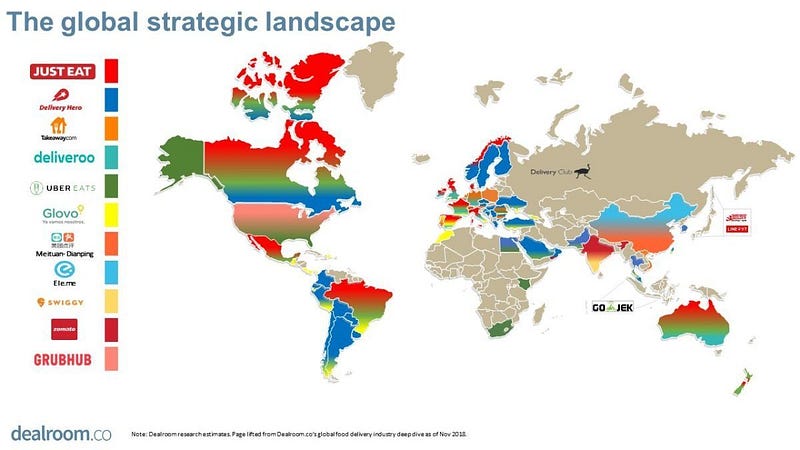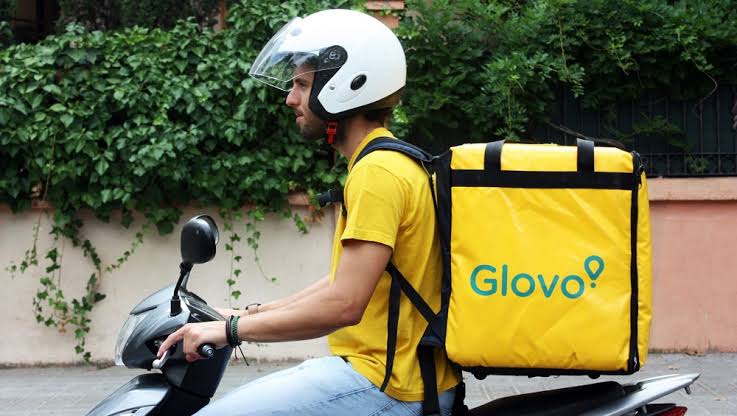Spanish Startup Glovo Is Planning To Pour $5.5m Into Its Egyptian Market
African logistics startup ecosystem has been at the receiving end of most equity investments in Africa this year. With over $30 million venture capital recently poured into Nigeria’s Kobo360, it appears founders who took that direction are having a field day. Spanish startup Glovo is pitching forward over 5 million euros ($5.5 million) into its Egyptian market during the coming period, an executive at the company’s Egyptian unit has said. In a country with no Deliveroo or less UberEats, Glovo is also targeting 50 per cent of the online delivery market in Egypt within 18 months.
Here Is All You Need To Know
- With presence in major African cities, Glovo’s market share in Egypt is now 21 per cent, Mustafa Kamel, sales manager at Glovo Egypt said in an interview
“Our target by the end of 2020 is to cover 16 cities in Egypt,” Kamel said. “We have invested 5 to 8 million euros since we entered, and during the coming period, we intend to invest another 5 million euros.”
Egypt Has Been A Fertile Ground For Delivery Startups
Online delivery companies in Egypt account for only 25 per cent of delivery services in the country, with 75 per cent of customers still depending on call centres, Kamel said.
“You see a very promising market in Egypt, especially with the growth of the smartphone market,” he added.
Glovo delivers a wide range of products and its competitors in Egypt include Uber Eats, Otlob and Elmenus.
“Food accounted for 95 per cent of orders when we started working in Egypt. Currently, the percentage has dropped to about 72 per cent,” Kamel said.
Read Also: Learning From Glovo, The Delivery Startup That Is Beating Uber In Big Markets
Here Are Quick Facts About Glovo:
- Barcelona-based Glovo is the on-demand delivery app that allows customers to order anything — restaurant meals, groceries, flowers — from more than 1,000 participating businesses and have it delivered in less than one hour.
- Simply put, the startup is known as the “anything” delivery app.
- Glovo makes profit by charging a service fee, plus a commission on their partners, depending on the cost of the product or item.
- The most interesting fact about Glovo may be that despite being founded only about 4 years ago in 2015, the company already has a presence in 178 cities across 28 countries.
- The startup’s vision is to be a lifestyle app with all urban services available easily through its smartphone application.
- Food delivery service remains its most popular service. Other services available on the app include Groceries, Pharmacy, Desserts, Courier, and Quiero (anything).
- While most companies are very focused on food only, Glovo can, however, deliver everything.

- The food business allows users to find and place orders with their favorite restaurants which is picked up when ready and delivered to the user’s doorstep. Today, more than 85% of Glovo’s orders in Europe are for food.
- Unlike the other couriers — namely the UK-based Deliveroo and US-based UberEats — Glovo couriers don’t just pick up food for customers of the app. They’ll also buy them a particular dress in a size 12 from Zara, or grab some painkillers from a pharmacy if the customers so request.
- While this model continues to be its flagship service, the company is reportedly experimenting with CloudKitchens and Grocery Darkstores.
- In fact, the startup has become so successful that Bloomberg said Glovo could now be worth €650 million ($730 million)
- The firm’s revenue jumped from €18 million ($20 million) in 2017 to €81 million ($91 million) last year.
- Glovo’s activities in Egypt are limited to the capital Cairo and Alexandria, the second-largest city.
Charles Rapulu Udoh

Charles Rapulu Udoh is a Lagos-based Lawyer with special focus on Business Law, Intellectual Property Rights, Entertainment and Technology Law. He is also an award-winning writer. Working for notable organizations so far has exposed him to some of industry best practices in business, finance strategies, law, dispute resolution, and data analytics both in Nigeria and across the world

